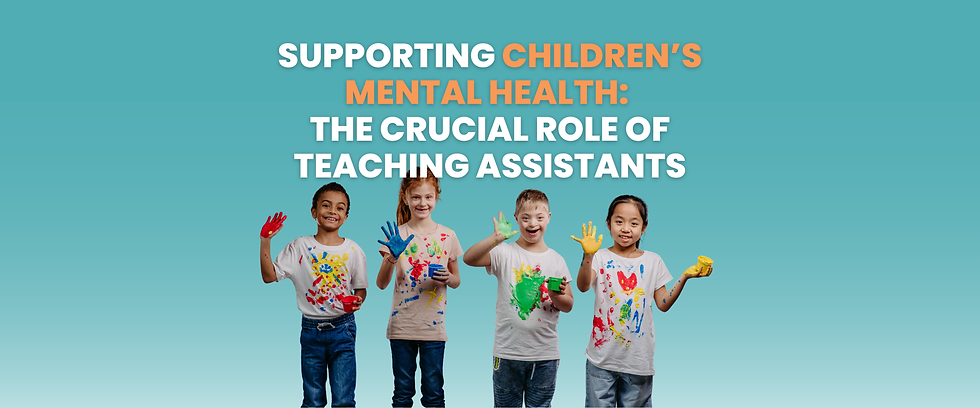What exactly is SEN? And what types of conditions fall under the umbrella term?
- Victoria Graves
- Oct 13, 2022
- 3 min read
Updated: Feb 13, 2024

SEN stands for Special Educational Needs whereas SEND stands for Special Educational Needs and Disabilities. But What exactly is SEN? And what types of conditions fall under the umbrella term?
They are umbrella terms to describe learning difficulties or disabilities that make it harder for some children to learn than most children.
They cover a wide range of behavioural, emotional, and social difficulties; speech, language and communication difficulties; hearing, visual and multi-sensory impairment, physical disability (in SEND) and autism.
These conditions can affect the children’s behaviour or ability to socialise, reading and writing, comprehension, levels of concentration or physical abilities.
There are 4 broad areas of Special Educational Needs, these are:
Cognition and learning
Communication and Interaction
Social, emotional and mental health
Sensory and/or physical difficulties.
A child is considered to have a learning difficulty if she or he:
has a significantly greater difficulty in learning than most others of the same age; or
has a disability (in SEND) which prevents or hinders them from making use of facilities of a kind generally provided for others of the same age in mainstream schools or mainstream post-16 institutions.
Pupils with SEN can be identified as such by their parents, health worker (eg GP, health visitor or social worker) or by the school referring them on to an educational psychologist or a Special Educational Needs Co-ordinator (SENCO).
Once they have been identified, the child should be presented with a personalised education, health and care (EHC) plan, which is a document managed by the Local Authority that describes a child or young person's special educational, health and social care needs and the plan to support those needs.
A request can be made on behalf of a child by anyone who thinks an assessment may be necessary, including doctors, health visitors, teachers, parents and family friends of the child, or via a self-request by those over 16.
The UK law states that schools must have in place several policies including a Special Education Needs policy, describing the school’s mission, values, vision and aims for pupils with extra support needs.
Pupils might be offered additional support given during school hours, like speech therapy or additional reading and writing sessions, more resource for teaching assistants in the class or a higher teacher to student ratio; or they might offer a dedicated SEN department within the school. In some areas, certain schools specialise only in SEN.
Working with children with SEN can be challenging at times but also very rewarding and it usually requires a certain amount of creativity, patience and flexibility to be able to design an approach to suit each individual child and find ways to inspire them.
When we are recruiting for SEN-based roles, we are looking for people with some experience with children with SEN, be it family members, through clubs or activities but it doesn’t need to be in a formal school setting. If you are interested but not sure whether you have enough “relevant” experience, please get in touch and we can chat it through with you. Email us at: info@inspiringteaching.co.uk .
Inspiring Teaching is a specialist recruitment agency for the education sector, and they are experts in SEN schools and SEN placements in mainstream schools. If you are interested in finding your first role in a SEN environment, or you have experience and are looking for a new challenge, we can help. Find out more and register your details now at https://www.inspiringteaching.co.uk/teachers-tas




Comments